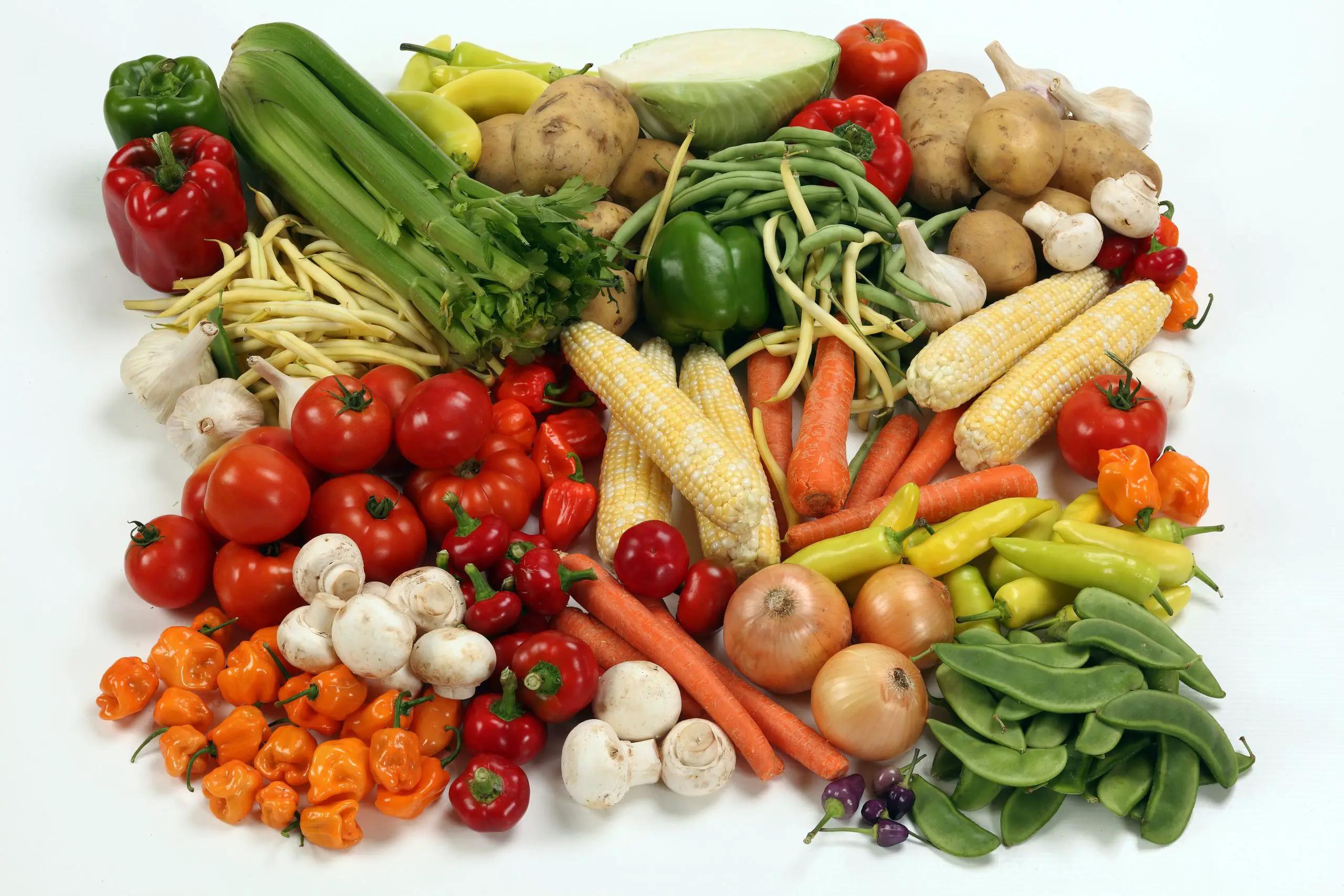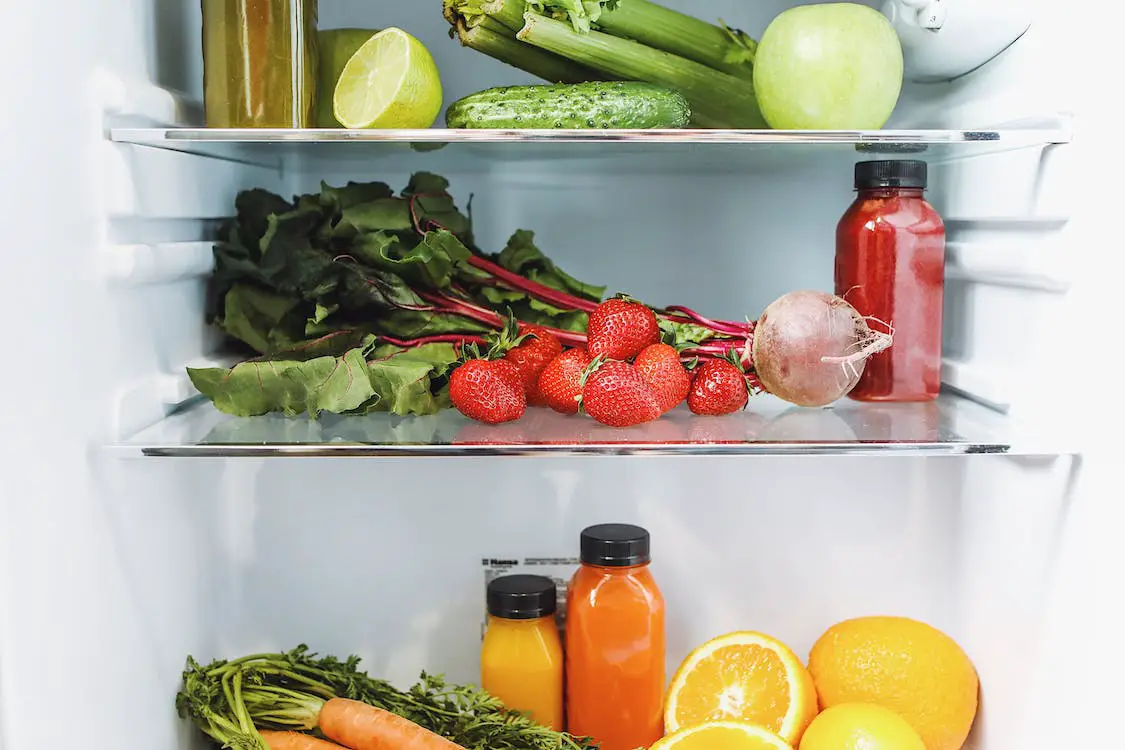If you’re wondering how long to store vegetables in the fridge, there are a few tricks you can try. Asparagus, celery, green onions, Italian parsley, and tomatoes can all be stored in plastic bags. Celery, carrots, and potatoes should be stored in a dark and cool place. Artichokes, garlic, and basil can be stored in a vase with fresh water. For other vegetables, try placing them in the refrigerator’s lower temperature section or mesh bags.

How Long can Vegetables Last in the Fridge?
Since food waste is a growing problem, most people are now mindful of the need to waste as little food as possible.
Storing your leftover vegetables so you can eat them later is one technique to reduce food waste. As you are eating more home-cooked meals, this can also be healthier for your health.
However, it does come with its own set of issues. It can be challenging to determine how long you can store leftover cooked veggies before they become unsafe to eat without a best-before date being stated on the label.
Cooked vegetables should keep in the refrigerator for 3–7 days when kept in an airtight container. High-water-content vegetables will degrade more quickly than low-water-content vegetables. Vegetables that have been cooked and canned can be kept for 7 to 10 days.
For both fridge and freezer storage, I advise using an airtight container, like this one from Amazon.
For additional information on how long cooked veggies last, how to store them properly, and how to identify when they’ve gone bad, please keep reading.
Celery
When storing celery, it is important to wash the stalk thoroughly and cut it into medium-sized pieces. Then, place them in a bowl with one inch of water above the celery. After soaking for a few hours, drain the water and store it in an airtight container. Ideally, you should change the water every day.
If you plan to make a recipe that calls for celery, it is best to use the celery within a day or two. It is not recommended to use a whole stalk for a Bloody Mary, for example, but if you plan to use a large amount over a couple of days, then you can cut it into smaller pieces and store them in a plastic bag or container. This will help keep the celery crisper for longer.
When storing celery, keep in mind that it can go bad before its expiration date. It will start losing its bright green hue, turn limp, and start emitting a foul odor. This is a sign that it is beginning to rot.
Broccoli
You may be wondering how long broccoli will last in the fridge. The answer depends on how you store it. Raw broccoli is best stored in the refrigerator at a cold temperature away from other foods that will generate too much ethylene gas. If you are worried about the broccoli becoming mushy, consider wrapping it in a damp paper towel. This will prevent a buildup of moisture and ensure that the broccoli stays crisp and firm.
The main sign that broccoli is past its prime is mold or a bad smell. If the broccoli is green but has fuzzy white mold spots, it is time to discard it. Rotting broccoli will smell like rotten eggs. It is also not safe for consumption. If the broccoli becomes limp and floppy, you should wash it with water, but this is not a long-term solution. You should also discard any broccoli that has slimy or pale florets.
Cauliflower
If the cauliflower looks bad, it is probably bad. It should have no mold or large black and brown spots. It should also have a neutral smell. If it has a rotten or musty odor, it should be discarded immediately. It may also have a weird or foul taste. If you notice these problems, throw the entire cauliflower out.
Cauliflower is a versatile vegetable that can last for months in the fridge. It can be stored in an airtight container or covered with aluminum foil. It can also be frozen for longer periods. It is also a great food for weight loss, as it is high in fiber and antioxidants and also contains phytochemicals like choline. However, before consuming cauliflower, be sure to follow proper food hygiene to keep it fresh and safe.
Onions
There are certain guidelines to follow when storing onions in the fridge. They need to be stored in a dark, dry place and at a temperature between 45degF and 55degF. It is also important to keep them out of plastic bags and never reuse them. Instead, use netted bags and baskets. They should be kept away from humidity as well, as they can quickly spoil if they are exposed to damp conditions.
Before buying your onions, be sure to feel the skin to ensure they are in good condition. If the skin is loose or damaged, it will not retain the fresh taste and flavor and won’t last as long. It’s also important not to peel your onions at home. The skin protects the onion’s interior from the environment, making them last longer.
Squash
While butternut squash is often associated with cool weather and hearty dishes, you can enjoy this versatile vegetable all year long. It is also known as “winter squash” and can be stored for quite a long time. The length of time it will remain fresh in the fridge largely depends on how it is stored.
The best way to extend the life of your squash is to wash it thoroughly. If you don’t, it will go bad much faster. Also, you’ll have a harder time spotting any blemishes, and squash that is damaged or exposed to freezing temperatures won’t last as long.
How Long can Cooked Vegetables Stay in the Fridge?
Vegetable leftovers can be kept in the refrigerator for 3 to 7 days (7-10 days for canned cooked vegetables). The main thing to keep in mind when calculating how long it takes for veggies to spoil is that you are battling bacterial development.
Salmonella and E. coli are two bacteria that can develop remarkably quickly and make you very unwell. Compared to other meals like meat and eggs, this is less of an issue with veggies, but you still need to exercise caution.
Since bacteria love moisture, cooked veggies have significantly more moisture than they did when they were fresh. So, unlike fresh veggies, cooked vegetables cannot be stored for as long.
This explains why fruits and vegetables with a high water content, like broccoli, tomatoes, and eggplant, don’t keep as long as fruits and vegetables with a low water content, like bananas, spinach, and potatoes.
How to Store Cooked Vegetables in the Fridge?
It is a frequent misperception that food must cool completely before being placed in the refrigerator. That is untrue. While they are still warm, your leftovers can be stored in your refrigerator without risk.
Remember that as soon as cooked veggies are left out at room temperature, bacteria begin to multiply, so the sooner you can put them in the fridge, the better.
The only time you should wait for your food to slightly cool is if there is a lot of it and it is quite hot, as this may cause your refrigerator to become too cold. But even in this situation, all you need to do is wait till the steam stops.
Put your leftover vegetables in an airtight, sealable container within 2 hours (or 1 hour if the temperature where you are is over 90oF). When it comes to your health and the safety of your food, don’t skimp. Here are the containers I suggest, which are available on Amazon. They have locking tabs that take the guesswork out of airtightness and are guaranteed to be so.
Do not, under any circumstances, place your cooked veggies in the pan they were cooked in straight into the refrigerator. They can allow more bacteria in because they aren’t made to be sealed for storage. If they are constructed of copper or aluminum, chemicals may gradually seep into your food, and if the food is salty or acidic, it may destroy your pans.
How to Tell if Cooked Vegetables have Gone Bad?
It may be rather simple to determine when your cooked vegetables have gone rotten when you know what to look out for. There are certain unmistakable signals that the bacteria are breaking down the molecules in your food as it begins.
Your cooked veggies should be discarded if they have developed a slimy layer, show evidence of visible mold, are discolored, smell rancid, or have a noticeable change in texture.
You should always write on your containers when you put your cooked veggies in the fridge and throw them away after 7 days, even if they appear and smell great because you might still get sick from food that doesn’t have these signals.
What Happens if you Leave Vegetables at Room Temperature?
Vegetables become dangerous to consume if they are left at room temperature for more than a few hours due to the spread of bacteria. If the room is moderately chilly, you might find that veggies are safe for an hour, but you shouldn’t keep them out for longer than two hours at a time.
Although it is recommended to avoid doing this, many individuals do leave veggies out at room temperature for more than two hours and discover that reheating them is not a problem. Even if you carefully reheat the vegetables, avoid eating any that have been left out for several hours or overnight. They may cause you to become seriously ill.
Conclusion
Veggies that have been cooked will keep in the fridge for about three to seven days, however, canned vegetables may keep longer. Vegetables should be thrown out if they have been stored in the refrigerator for longer than a week since they are likely to have gone bad.

